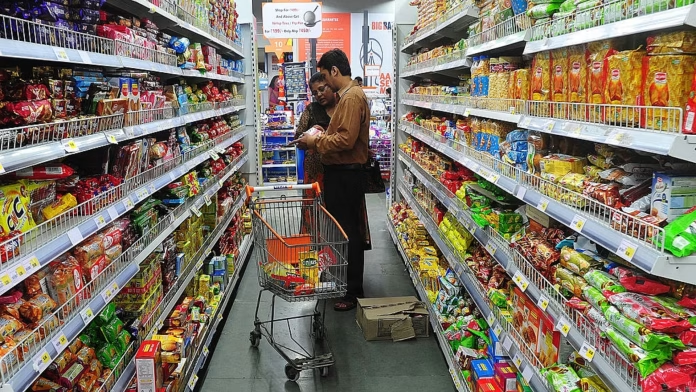Sales of fast-moving consumer goods in kirana stores or traditional shops have decelerated, according to chief executives of companies like Marico, Dabur, Emami, and Bajaj Consumer. This can be attributed to factors such as a lower number of product launches compared to e-commerce and organized retail, a decrease in credit availability from distributors, and a weakening of rural demand.
In response to this, the companies have decided to reinvest in kirana stores, as these stores still constitute four-fifths of the total FMCG sales in the country, according to their statements.
They believe that concentrating on kirana stores will yield positive results, as consumer sentiment in rural areas is anticipated to improve in the coming quarters.
Saugata Gupta, the managing director of Marico, emphasized the necessity for companies to reinvest in general trade to reignite growth in the sector. This is particularly crucial as the industry has seen significant development in e-commerce and modern trade over the past three years, with a majority of new launches occurring in these channels.
“It will be an ‘and’ growth and not an ‘or’ growth,” he told analysts recently. “Over the next few quarters, we will systematically address this general trade issue and the deflation tapering off in the second half will also help.”
The shortage of end-consumer sales has led to a depletion of credit from distributors to kirana stores. This is adversely affecting the payback period for the earlier credit extended to these stores, subsequently impacting the terms for obtaining fresh credit. The constriction of credit is, in turn, preventing kirana stores from stocking up adequately, thus creating a vicious cycle.
Consequently, inventory levels have decreased, such as in the case of Marico, where they have dropped by three to four days.
In the retail sector, modern trade experienced a year-on-year growth of 19.5% during the September quarter, according to NielsenIQ data, whereas traditional trade recorded a growth of 7.5%. However, this growth was primarily attributed to a low base in the previous year when sales had decreased by 2%. According to Bizom, a platform that monitors retail sales and kirana orders, the number of kirana outlets declined by 3.4% in October compared to August and remained flat year-on-year. Additionally, there was an accumulation of inventory.
“An inconsistent demand for Diwali is leading to excess stocking across kiranas and standalone modern trade channels. This in turn is leading to deep discounts for liquidation of stocks at these stores to ensure new product stocking happens quicker,” said Akshay D’Souza, chief of growth and insights at Mobisy Technologies, which owns Bizom.
Parle Products senior category head Mayank Shah said, “Distributors are wary of giving credit to kiranas since they are not receiving money from outlets timely. This issue is more pronounced in stores focused on low velocity items such as personal care products.”
Despite the significant rise in e-commerce over the past three years since the onset of Covid-19 and the rapid growth of modern trade driven by retail giants like Reliance Retail and D’Mart, general trade continues to be the primary driver of FMCG sales in India.
In fact, despite facing a high baseline, kirana stores outpaced supermarkets and even online grocers during the pandemic. Throughout the Covid-19 period, the majority of consumers opted to shop from local neighborhood stores, especially when supermarkets operated with restrictions. However, industry executives now assert that this trend has shifted.
Jaideep Nandi, Managing Director of Bajaj Consumer Care, noted that there was a low single-digit decline in general trade during the July-September quarter, primarily attributable to subdued rural demand.
“Urban markets continue to outperform rural markets, which remained subdued on account of inflation and below-average rainfall in certain regions,” he said.





